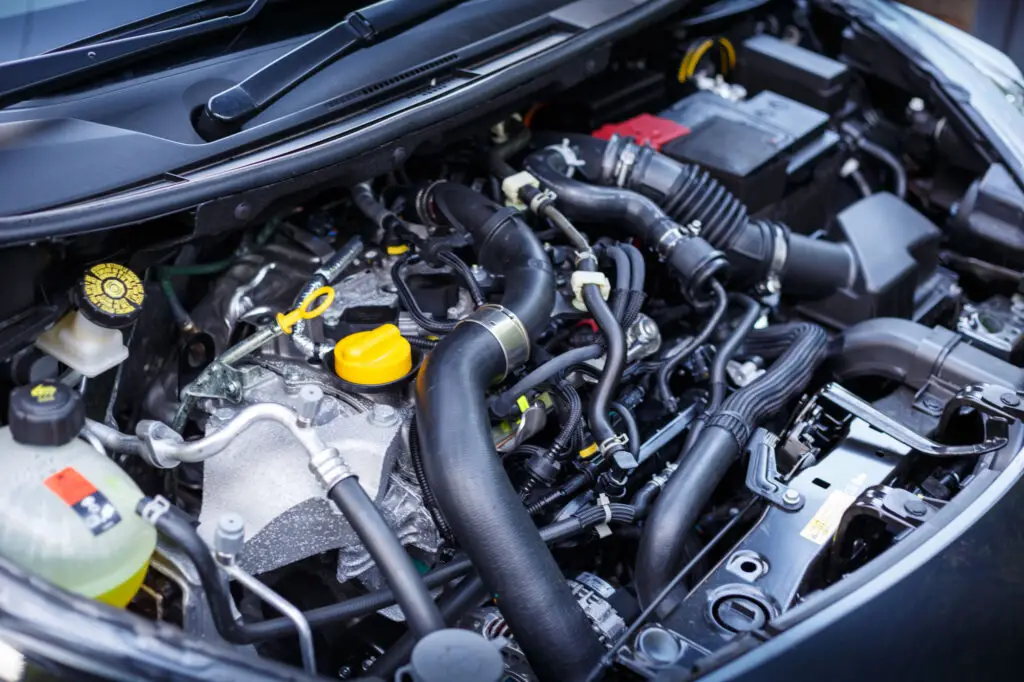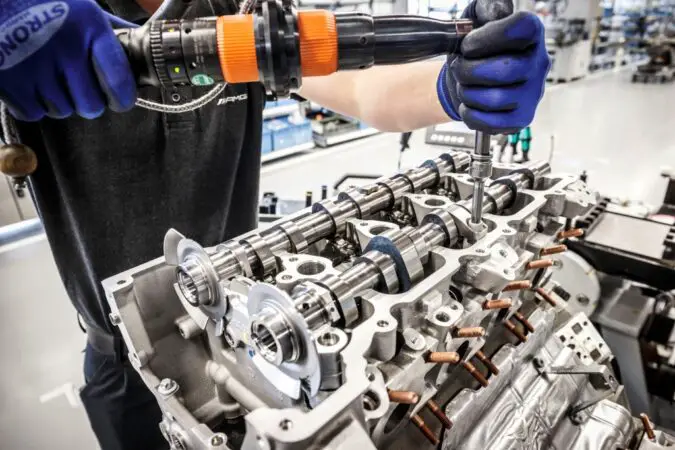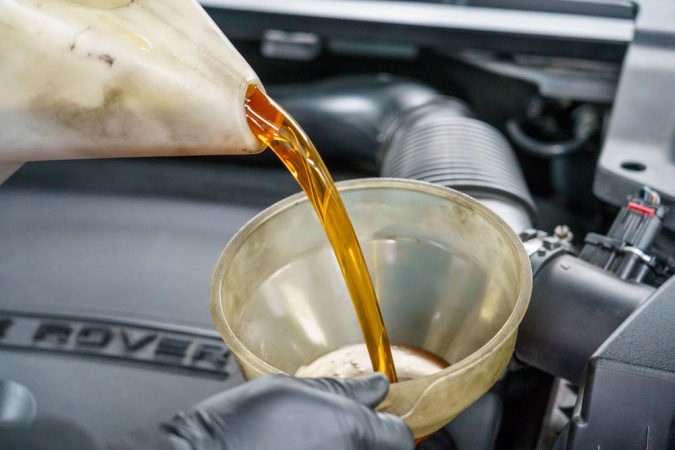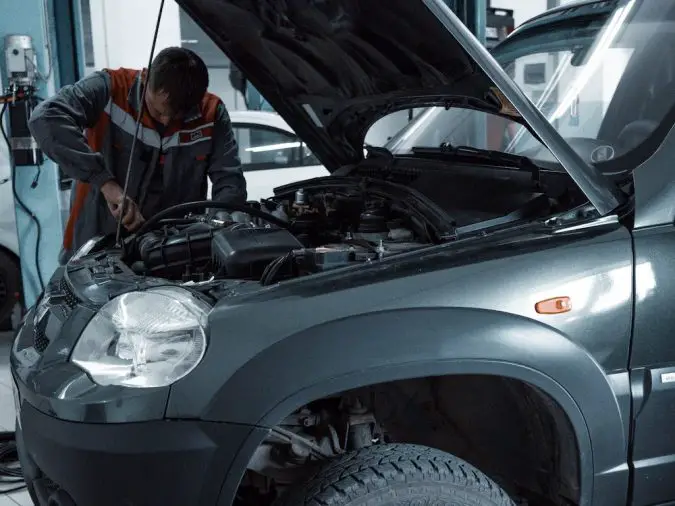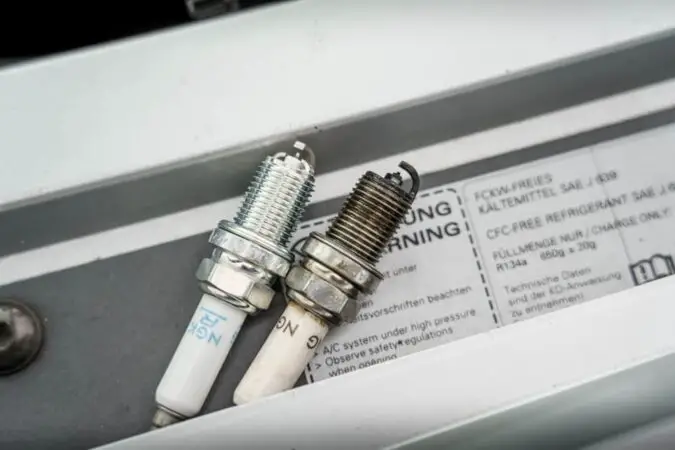One of the most frightening noises ever known to any automotive enthusiast has to be the rod knock. A rod knock is an extremely loud banging sound from your engine. This loud banging sound can make any car owner feel extremely scared about this noise. A rod knock can be extremely expensive to repair, however, all engine knocks are not rod knocks. We are here to discuss everything you need to know about to know and fix the rod knock problem.
- What Is A Rod Knock?
- What Causes Rod Knock?
- Rod Knock Symptoms
- How To Fix Rod Knock
- Rod Knock Repair Cost
- Piston Slap Vs Rod Knock
- Frequently Asked Questions
- Conclusion
What Is A Rod Knock
In simple terms, a rod knock is a sound that is created when one or more of your car rods “knock” against the crank as it changed directions while rotating. So to understand this further, you need to know that there are three parts that play a major role in this issue. These three parts are the connecting rod, the crankshaft, and a bearing that connects these two parts.
The connecting rod is connected to the crankshaft by way of a bearing. The clearance in the connecting rod bearing should be extremely small (as small as 0.001 inches). That is enough for a thin layer of oil to separate all the parts and keep things moving nicely and freely. The oil film is basically acting as a barrier between the two surfaces.
As the bearing wears, the gap between these two parts widens. This will cause the oil to no longer work as a proper barrier. This is extremely unlikely to happen. Although the loss of oil pressure, dirty oil, or low oil level can be the reason why your car is facing the problem of a rod knock.
What Does Rod Knock Sound Like
There are multiple sources that can cause the engine to make a knocking sound. It could be rod knocking or the whole engine locking. A rod knock unlike the engine locking is fixable. An individual; can easily notice a rod knock especially if you have experienced it before. To put it in layman’s terms, it is a loud bang that comes from the engine. This sound is most noticeable especially when you rev up your engine and let off the gas. Most often you can hear it as soon as you let go of the gas.
What Is A Spun Bearing
One of the worst failures that can happen inside an engine has to be a spun bearing. The crankshaft and rods spin at high speeds without any friction between them and without melting. This is because they are separated by specially measured bearings that have an extremely thin layer of oil lubricating both metals. Measuring the bearing and the space for the oil is extremely essential for any car out there.
When the layer of oil runs dry or the bearing stops spinning or working, that can be extremely dangerous for your vehicle. Considering the high speeds these parts spin at the damage can be extremely catastrophic and instantaneous. A knocking sound (aka rod knock) can be the result of the connecting rod banging on the crankshaft and doing some horrific damage.
What Causes Rod Knock
The most common reason for the rod knock problem has to be related to the connecting rod bearings. Rod knock can be caused due to only one issue (i.e there is a problem with the bearing). However, there are several causes that can lead to this problem. Here is a list of all the reasons or causes why your car will be facing the problem of rod knock.
1. Problem With The Bearing
The main part that can cause the rod knock problem has to be the bearing connecting the crankshaft and connecting rod. As the pistons move up and down inside the car engine, they are responsible for rotating the crankshaft. This results in the wheel receiving the power. The bearings that connect the crankshaft are responsible for making sure that the piston movement remains smooth and controlled.
However, the bearings wear out over time and can lose the ideal position. When these bearings wear out there is a play in the pistons and the crankshaft which might be the reason for the knocking sound. This might be the core cause of the rod knock problem.
2. Lack Of Lubrication
Another reason or cause for your car facing the problem might be because of a lack of lubrication in the bearing. As said before the connecting rod is connected to the crankshaft by way of a bearing. The clearance in the connecting rod bearing has to be as small as 0.001 inches. That is enough for a thin layer of oil to separate all the parts and keep things moving nicely and freely. The oil film basically acts as a barrier between these two parts.
Due to a lack of lubrication, the parts get restricted and cannot move freely without any problem. Due to a loss of lubrication, there is an increase in friction. This further causes the bearing to wear and not perform properly.
3. High Operating Loads
Most of the time the rod knock issues come up because of the constant working of an engine. When you are overworking an engine, usually after a point of time the temperature of the engine rises. Alongside that, if the engine is constantly working at high RPMs for a long amount of time it might cause certain problems inside the engine.
As said before in this article the crankshaft and the connecting rod work together with the help of a bearing. If your vehicle is working at high rpm for a long amount of time, the high rotations with the bearing might cause excessive wear and tear. This will result in the bearing going bad and your car facing the problem rod knock.
4. Loss Of Oil Pressure
Loss of oil pressure can be one of the main causes that can cause your engine to knock. You might be able to reduce the noise if you fill the engine with oil might help you fix the cause but is highly unlikely. The damage to the internal parts of the engine usually has already occurred when the oil level drops to a point where you can hear the engine knock.
The only thing that keeps the crankshaft and the connecting rod working in sync is the thin layer of oil. If that thin layer goes missing it can lead to problems in the car. These problems can further cause your car to face the problem of car knock. That is why oil should be changed regularly and maintenance should not be ignored.
5. Engine Oil Quality
Another reason why you hear a knocking sound in your engine is due to the quality of engine oil used. Dirty oil or bad quality oil might not work as a proper lubricant for the parts inside the engine. This will cause the car parts to go through more wear and tear than usual. Bad quality oil which is not up to the standards will also contribute your vehicle to facing the problem of rod knocking.
Rod Knock Symptoms
If we put it in layman’s terms, a rod knock is simply a series of clanking and banging noise that comes from the engine. This sound can be easily identified when you rev up your engine and let go of the gas. The sound is easily heard when you let go of the gas because of the fact that the engine is not burning any gas.
Someone who has experienced rod knock before can make out easily the problem their car is facing. For people who are new to this problem here is a list of symptoms that might help you diagnose the problem and save yourself from something that might harm your car. Here is a list of symptoms for rod knock.
Knocking Sound
As the name suggests, the primary symptom of rod knock is a knocking sound that is generated inside your engine. This loud bang can be heard when you start the car and let it idle. These bangs get louder when the engine is pushed to the limit or there is a lot of load on the vehicle.
This knocking sound is very evident and anyone can listen to it and know that something major is wrong with the engine.
This knocking sound is extremely loud and can cause some panic for the owner. The car needs to be shown to a mechanic as soon as possible to get rid of this rod knock problem.
Low Oil Pressure
Another clear symptom of having a rod knock problem is low oil pressure. When a bearing has failed or is starting to fail, the first thing you will notice is a decrease in oil pressure. This is most evident when you turn on your car. The low oil pressure light might also pop up on your dash but it goes away as you start driving. This is a clear indication that your bearing has gone bad or is starting to go bad. This can be very dangerous as this will lead to the problem of rod knocking.
How To Fix Rod Knock
Rod knock is a sign of distress that comes from within the engine. Experiencing the problem of rod knock can be extremely stressful and nerve-wracking for any new car owner.
There are several factors that might have led your car to face this problem. Here is a list of everything you can do in order to rid of or diagnose the problem rod knock.
1. Drain The Oil
The first thing you need to do is place your car on a mechanic ramp and open the oil cap that is placed underneath the car. It is advised to place an oil collector tray while you drain your car of oil. It is a more organized way of working on your car as well as it does not create a mess.
2. Remove The Oil Pans
Once you have drained your engine of all the oil you need to take off the oil pan. In many cars, the oil pan is connected or bolted onto the engine. After taking the oil pan off the engine of the car, you need to check the oil pan for copper flakes or pieces of the bearing. If you find any, there is a huge chance that the bearing on your car has broken. Rod bearings are often coated with copper. Therefore if your oil pan has traces of copper flakes, your bearings have taken quite a bit of damage.
3. Check The Connecting Rods
Another thing you need to do once the oil cap is off is to check the connecting rods. If the connecting rods are loose, then that might be the root cause of your car having a knocking sound. If these rods do seem loose, you need to inspect them closely for any kind of damage. Fix the rods or replace them to take care of this problem.
4. Check The Bearings
Even if you have checked all the connecting rods, it is advised to check all the bearings again in a proper manner. To inspect these bearings you need to remove them from the engine. To do this you will need to remove the rod caps. The bearings need to be smooth without any signs of wearing. It is advised to change any bearing that has the slightest marks of wearing.
5. Check The Crankshaft
With the rod caps removed you also need to check the condition of the connecting rods and the crankshaft. The part that needs to be checked is the journals on the crankshaft. This is that part of the crankshaft that rotates inside the rod bearing. If they are any signs that signify that there has been some sort of wear or damage then the crankshaft also needs to be removed and checked.
Rod Knock Repair Cost
Repairing the rod knock problem is not an easy one. It involves stripping down the entire engine. It involves removing all the connecting rods and the crankshaft from the engine. This problem can only be solved with the engine out of the vehicle. It requires a certain set of tools and a certain level of expertise.
When we talk about the rod knock repair cost it depends upon the model and makes of a car. Usually, the cost of repairing rod knock can cost anywhere between two thousand dollars and five thousand dollars. The cost of repairs also depends upon the damage that has been received by the engine.
Depending upon the level of damage that has occurred the journal of the crankshaft and the connecting rods need to be fixed or replaced. It is usually advised to change the bearings even if there is the slightest sign of bearing wear and tear. A bearing cost anywhere around $150-$200 which is added to the labor cost of dismantling the engine.
Piston Slap Vs Rod Knock
It is extremely difficult to differentiate between the rod knock and piston slap. Both of them are extremely similar and someone who is new to the automotive community can have a hard time differentiating between the two. Rod knocks usually have a deeper tone but pistons slaps are way worse for the health of your engine. Piston slaps can only be heard when you turn on the car once you start driving. Once the car is running, the piston expands due to the heat in the engine and then the sound disappears.
On the other hand when the heat in the engine increases the rod knock noise will increase. Rod knock is a sound where large pieces of metals hit together. This is because the large end of the rod continues banging on the crank.
Frequently Asked Questions
Here is a list of frequently asked doubts that people have while facing the problem rod knock.
How Long Can You Drive With Rod Knock?
A number of people have questions related to the seriousness of the rod knock issue. Rod knock is an engine issue where there is a loud banging sound that comes from the engine bay. This usually happens when there is a problem with the bearings that connect the connecting rod and crankshaft.
As soon as your car starts to make the knocking sound the connecting rod or the crankshaft might break without a warning. You can start the engine and drive it but the engine can be extremely damaged because of the problem.
This problem might surface because there might be a loss of lubrication inside the engine. The bearings that connect these two parts have a thin layer of oil that allows the engine to run smoothly. Once that layer goes missing then there can be extremely serious problems.
How To Extend Life Of An Engine With Rod Knock?
When your car is facing an engine knock problem, you need to replace certain parts of the engine immediately. Especially if you want to increase the life of your engine and not face any more problems. Some simple solutions can increase the life of your engine and save you from a higher replacement cost.
Replacing the engine should never be your priority. Replacing an engine can be extremely expensive and a long irritating process. Here is a list of problems you need to take care of in order to extend the life of your engine.
Replace Connector Rods
When your car is facing the problem of rod knock, damaged rods are usually the main culprit. Therefore replacing the damaged connecting rods can help you get over the problem rod knock. It will cost you much cheaper than replacing the whole engine
Replace The Bearings
Bearings are responsible for the smooth motion of the crankshaft and pistons. Damaged bearings are responsible for making a lot of noise. It is extremely important to check the bearings when your car is facing the problem of rod knocking. You need to get the bearings replaced if there is any sign of wear on any of the bearings.
Ignore Overload
Every car can only carry a certain amount of limit. When you do actually overload the engine, the engine cannot keep up with that. This can result in the damage of several parts. Rod knocking is one of these problems. This is why it is advised that you should not overload your car. You should definitely not continue overloading the car regularly.
Replace Faulty Spark Plugs
To everyone who does not know a lot about engines, pistons, and connector rods are connected to the ignition chamber as well as spark plugs. That is why some faulty spark plugs can damage the rods and cause the problems like rod knocking.
When you notice the loud banging noise (aka rod knocking) you should take your car to the mechanic and get the parts replaced. This will help you increase the life of your car.
Use Better Quality Lubricants
There are a series of metal parts that are inside an engine. That is why proper lubrication is important for the car to move smoothly. Alongside that, it also helps eliminate the friction side of the engine. Using bad-quality lubricants can dehydrate the pistons. This can be the cause and the main reason for the rod knock problem.
Facts about Engine Rod Knock
- Rod knock is a sound that comes from inside the engine and increases with speed or when the engine is under load.
- There are several things that can make a rod-knock-like noise, so it’s important to diagnose the issue correctly.
- If the knocking noise goes away once the engine warms up, it’s most likely not rod knock.
- Rod knock is the sound of one or more rods “knocking” against the crankshaft as it changes direction through its rotation.
- The gap tolerances between the bearing and crank journal allow oil to form a barrier between the two surfaces, and as the bearing wears, this gap widens, causing the oil to no longer form a proper barrier and leading to rod knock.
- Damage to the bearing or crank journal can also cause premature rod knock, with loss of oil pressure, dirty oil, and low oil pressure being just a few of the culprits.
- A spun bearing, where the bearing literally spins in the end of the rod, is one of the most common causes of rod knock and is often caused by the rod cap bolts stretching or improper rod bolt torqueing during the build.
- Rod knock is not going away on its own and is an eventual death sentence for the engine. Moving to a thicker oil or using an additive can cheat death for a while, but it only prolongs the problem.
- The only solution to rod knock is an engine rebuild where the rods are pulled and the bearings replaced, along with polishing and turning the crankshaft.
- Other things that can cause a rod-knock-type noise include defective main crankshaft bearings, loose or broken timing belt tensioner, failing air conditioning compressor, broken or cracked flywheel or flex-plate, sticking/ticking valves, worn water pump bearing, worn alternator rotor bearings, and bad exhaust leak.
Conclusion
As said before, one of the scariest noises known to any automotive enthusiast is the rod knock. Rod knock is excessive banging noise that comes from inside the engine. a rod knock is a rod knock is a sound that is created when one or more of your car’s connecting rods “knock” against the crank as it changed directions while rotating.
The connecting rods and crankshafts are connected by a bearing and a thin layer of oil. any problem in these four parts can cause your engine to have a rod knock problem. Rod knocks can be extremely serious and can damage the engine of your car. This is why it is advised to fix this problem as soon as possible. If you drive while having a rod knock, it can result in an engine failure. Engine Failer can be way more expensive to fix than the rod knock problem.

